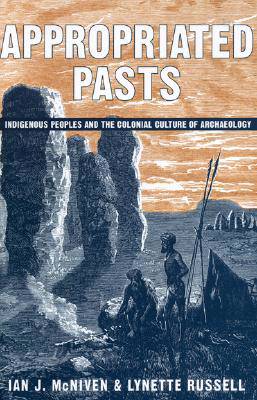
- Afhalen na 1 uur in een winkel met voorraad
- Gratis thuislevering in België vanaf € 30
- Ruim aanbod met 7 miljoen producten
- Afhalen na 1 uur in een winkel met voorraad
- Gratis thuislevering in België vanaf € 30
- Ruim aanbod met 7 miljoen producten
Zoeken
Appropriated Pasts
Indigenous Peoples and the Colonial Culture of Archaeology
Ian J McNiven, Lynette Russell
€ 85,95
+ 171 punten
Uitvoering
Omschrijving
: Archaeology has been complicit in the appropriation of indigenous peoples' pasts worldwide. While tales of blatant archaeological colonialism abound from the era of empire, the process also took more subtle and insidious forms. Ian McNiven and Lynette Russell outline archaeology's "colonial culture" and how it has shaped archaeological practice over the past century. Using examples from their native Australia-- and comparative material from North America, Africa, and elsewhere-- the authors show how colonized peoples were objectified by research, had their needs subordinated to those of science, were disassociated from their accomplishments by theories of diffusion, watched their histories reshaped by western concepts of social evolution, and had their cultures appropriated toward nationalist ends. The authors conclude by offering a decolonized archaeological practice through collaborative partnership with native peoples in understanding their past.
Specificaties
Betrokkenen
- Auteur(s):
- Uitgeverij:
Inhoud
- Aantal bladzijden:
- 328
- Taal:
- Engels
- Reeks:
Eigenschappen
- Productcode (EAN):
- 9780759109070
- Verschijningsdatum:
- 8/09/2005
- Uitvoering:
- Paperback
- Formaat:
- Trade paperback (VS)
- Afmetingen:
- 148 mm x 229 mm
- Gewicht:
- 512 g

Alleen bij Standaard Boekhandel
+ 171 punten op je klantenkaart van Standaard Boekhandel
Beoordelingen
We publiceren alleen reviews die voldoen aan de voorwaarden voor reviews. Bekijk onze voorwaarden voor reviews.











